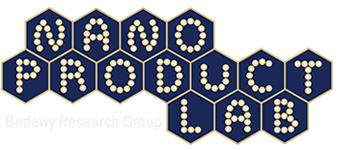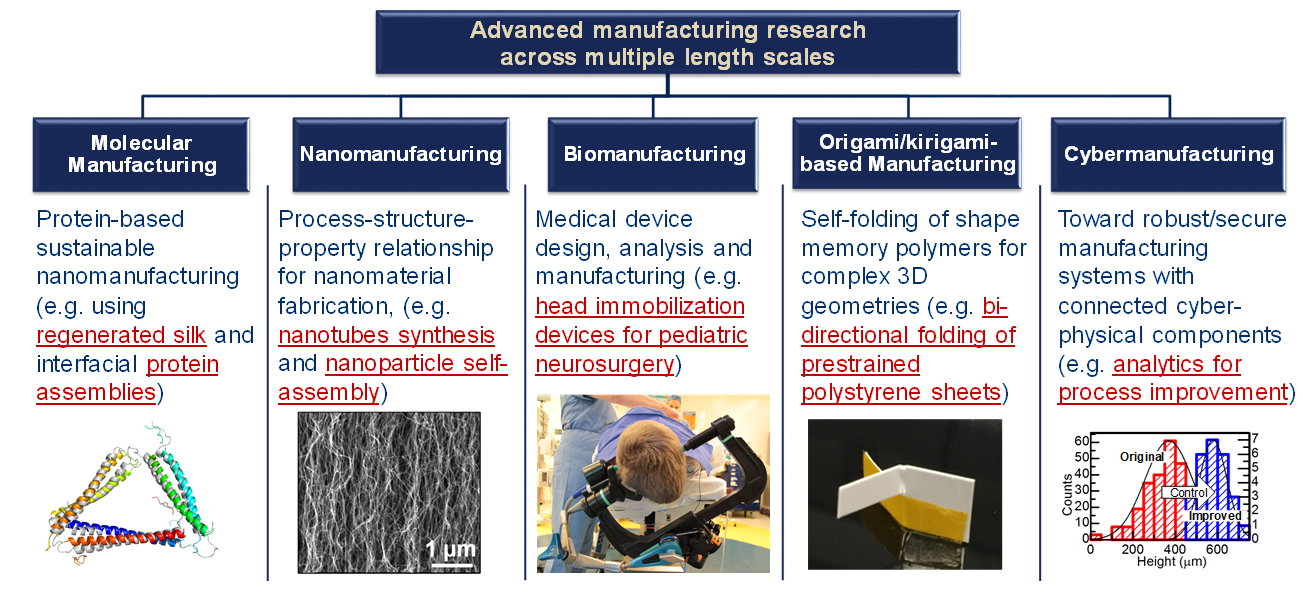Bioengineering
The Department of Bioengineering combines hands-on experience with the solid fundamentals that are needed to advance in research, medicine, and industry. The Department has a long-standing and unique relationship with the University of Pittsburgh Medical Center and other academic departments at the University of Pittsburgh as well as neighboring Carnegie Mellon University. Our faculty are shared with these organizations, offering access to state-of-the-art facilities and a wide array of research opportunities.
MOSTAFA BEDEWY

In the NanoProduct Lab (Bedewy Research Group), we leverage precision engineering, biomimetic/bio-inspired designs, and quantitative tools to tackle fundamental research questions at the interface between nanoscience, biotechnology, and manufacturing engineering. Bridging the gap between promising proof-of-concept results (in lab-scale environment) and mass-produced products (in industry), our work aims at creating novel solutions that impact major societal challenges in areas related to energy, healthcare, and the environment.

mbedewy@pitt.edu
http://nanoproductlab.org/
KEVIN CHEN
Dr. Kevin Chen's research focuses on scalable 3D laser manufacturing from nanoscale to macroscale. Sensor fused additive manufacturing.
YOUNGJAE CHUN

Medical Device Manufacturing Laboratory
Dr. Chun has developed various metallic biomaterial-based endovascular devices for treating brain/aortic aneurysms, cardiovascular disease, peripheral arterial disease, vascular injuries and trauma. Dr. Chun's current primary research interests include artificial smart biomaterials, bio-hybrid composites, endovascular devices, diagnostic vascular implants, and micro-bio-systems, as well as fundamental device-associated biocompatibility and development of experimental methods.
Some of the most challenging studies for medical devices today are in the interdisciplinary research on advanced material processing, biology/chemistry of interfaces, physics for design/manufacturing (i.e., microfabrication), in-vitro/in-vivo tests, and clinical trials. Our group’s primary research focus is on designing, manufacturing, and testing of medical devices to treat vascular diseases (e.g., cerebral and aortic aneurysms, peripheral arterial disease, coronary artery diseases and heart valves disease, etc.) using smart artificial materials through minimally invasive surgery.
In addition, we are expanding our research to implantable microsystems (e.g., sensors and actuators) for diagnose and treatment of vascular diseases, as well as more on circulatory diseases (i.e., cardiac, pulmonary, or renal) in the human body. Our goal of this research is to diagnose and help in the treatment of specific circulatory diseases concurrently using micro-scale devices implanted in the conduit of body. Our ultimate goal is to provide innovative minimally invasive surgical solutions based on new developments in science and engineering.
Smart Prosthesis using Nitinol and Other Metallic Biomaterials: In addition to vascular devices and associated studies, our group focuses on prosthesis. One novel material for prosthetic devices is Nitinol. This material is a biocompatible, equiatomic alloy exhibiting shape memory properties. Another novel material is Magnesium, which is a metallic biodegradable material that is ideally able to compromise its mechanical integrity and degradation during the tissue or bone remodeling period.
https://sites.google.com/view/chun-lab/home
yjchun@pitt.edu
PRASHANT KUMTA
Work in Professor Prashant N. Kumta’s laboratory focuses on innovative synthesis, fabrication and additive manufacturing of novel materials and architectures for energy and biotechnologies. Specifically, research is directed at fundamental characterization and obtaining a scientific understanding of structure and property relationships of novel materials and platforms for batteries, fuel cells, electrocatalysts, photoelectrocatalysts, degradable scaffolds, functionalization of scaffolds for tissue regeneration, drug and protein delivery, non-viral gene delivery, as well as embryonic stem cell differentiation.
PAUL LEU

Dr. Paul W. Leu’s research group focuses on combining simulations and experiments to discover and evaluate new advanced materials for optoelectronic devices and antibacterial surfaces. His lab simulates and fabricates various nanomaterials, such as metal nanomeshes, nanosphere coatings, nano-structured hazy glass, nanowires, and nanoholes for applications such as solar cells. His re-search seeks to understand the various process—structure—property relationships of these nano-materials to enable functionalities such as nanophotonic light scattering, plasmonic light trapping, antireflection, self-cleaning, and high durability.
LAMP has worked with various researchers at UPMC to evaluate new nanostructured surfaces for anti-biofouling (preventing adhesion), antibactericidal (killing bacteria), self-cleaning, and durability properties. The lab is determining how various mechanisms such as surface energy, topography, surface chemistry may contribute to these antibacterial properties.
Paul Leu is also the Pitt director of the MDS-Rely, an NSF IUCRC that is currently in the planning phase. The goal of MDS-Rely is to apply data science-informed research to better understand the reliability and performance lifetime of essential materials. It has the potential to transform this field in creating new technologies that enable unprecedented lifetimes, durability in extreme environments, and understanding of various degradation and failure mechanisms.
www.pitt.edu/~pleu/Research/index.html
http://mds-rely.org/
pleu@pitt.edu